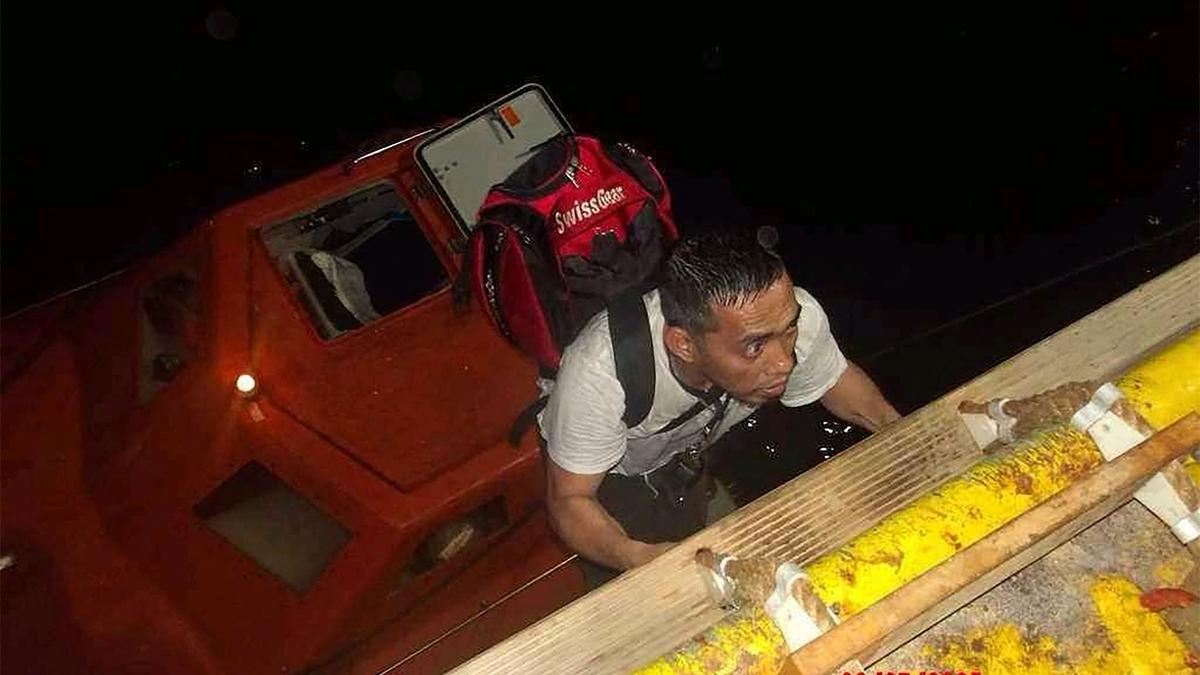Houthi Attack on Liberian-Flagged Cargo Ship Kills Three: Wounds Two in Red Sea Escalation
Red Sea | July 9, 2025 — An attack by Yemen’s Houthi rebels on a Liberian-flagged cargo ship in the Red Sea has left three mariners dead and two others seriously injured, according to a statement released Tuesday by the European Union’s naval mission, Operation Aspides. The latest assault underscores the resurgence of threats in one of the world’s most vital maritime trade routes, following a lull in Houthi aggression since late 2024.

The vessel, Eternity C, a Greek-owned cargo ship, was reportedly en route north toward the Suez Canal when it came under attack Monday night (July 7). The assailants, operating from small boats, simultaneously launched bomb-laden drones toward the ship, in a coordinated offensive reminiscent of previous high-profile incidents in the region. Armed security personnel aboard Eternity C engaged the attackers but were ultimately unable to prevent casualties or damage.
“This marks a sharp escalation,” said Wolf-Christian Paes, senior fellow at the International Institute for Strategic Studies. “We haven’t seen any real attacks on merchant shipping since December last year. And they’re back with a bang.”
The attack follows another major maritime assault on Sunday when the Houthis targeted the Liberian-flagged, Greek-owned bulk carrier Magic Seas. That vessel, carrying a cargo of fertilizer and steel billets bound for Turkey, was struck by drones, missiles, rocket-propelled grenades, and small arms fire. Its 22-member crew was forced to abandon ship. The Magic Seas reportedly sank after sustaining catastrophic damage.
While the Houthis have not officially claimed responsibility for the Eternity C incident, a pattern of tactics and political rhetoric, combined with statements from multiple international bodies, have led observers to attribute the assault to the Iran-aligned rebel group. Yemen’s internationally recognized, exiled government, the EU’s Operation Aspides, and the U.S. Embassy in Yemen — currently operating out of Saudi Arabia due to the ongoing civil conflict — all laid blame squarely on the Houthis.
“The Houthis are once again showing blatant disregard for human life, undermining freedom of navigation in the Red Sea,” the U.S. Embassy said in a sharp rebuke. “The intentional murder of innocent mariners shows us all the Houthis’ true colors and will only further the Houthis’ isolation.”
The two injured crew members from Eternity C, one of whom reportedly lost a leg, remain aboard the drifting vessel alongside the surviving crew. Rescue operations are underway, though security concerns in the region are complicating efforts.
Private maritime security firm Ambrey corroborated the EU’s account of the attack, confirming that the vessel was first targeted by fast-approaching boats before drones swarmed in overhead. The sequence of attack reflects a growing sophistication in the Houthis’ maritime capabilities — combining conventional and asymmetric tactics in ways that challenge both commercial shipping and military responses.
Further raising alarms, the Houthis on Tuesday released a propaganda video linked to the earlier Magic Seas assault. The highly produced footage, published through their media wing, shows Houthi fighters hailing the ship over VHF radio in English, threatening the crew before boarding the vessel. Masked gunmen are seen storming the bridge, walking over shattered glass and securing control before planting what appear to be explosive charges.
The final scene shows the Magic Seas engulfed in smoke and flames before disappearing beneath the waves — a chilling confirmation of the vessel’s destruction.
The video ends with the Houthis’ trademark chant: “God is the greatest; death to America; death to Israel; curse the Jews; victory to Islam.” The messaging mirrors a similar propaganda release following the August 2024 attack on the tanker Sounion, suggesting a deliberate media strategy to bolster the group’s anti-Western credentials.
The return of attacks in the Red Sea has reignited global concerns about the safety of one of the most strategic maritime corridors in the world. The route handles a significant portion of Europe and Asia-bound trade, with disruptions affecting shipping costs, insurance premiums, and regional stability.
International condemnation has been swift. Analysts warn that unless the security situation is stabilized, the Red Sea corridor could once again see a significant drop in commercial traffic, with vessels rerouting around the Cape of Good Hope — a costly and time-consuming alternative.
“The renewed violence risks reversing months of progress,” said a maritime security analyst based in Dubai. “Shipping lines were just beginning to cautiously resume operations through the Red Sea. These attacks could push them right back to square one.”
While the international naval presence in the area has been ramped up since late 2023 — with Operation Prosperity Guardian led by the U.S. and regional allies, and the EU’s own Operation Aspides — the new wave of Houthi aggression poses a fresh challenge to maritime security coordination.
The global shipping industry, already grappling with geopolitical tensions, environmental compliance pressures, and economic uncertainty, now faces the added burden of navigating renewed hostilities in one of its most crucial sea lanes.
As rescue and recovery operations continue in the Red Sea, maritime officials and international diplomats are urgently calling for a coordinated response to curb Houthi aggression and protect civilian seafarers from becoming pawns in Yemen’s long-running civil war.
Author: shipping inbox
shipping and maritime related web portal









